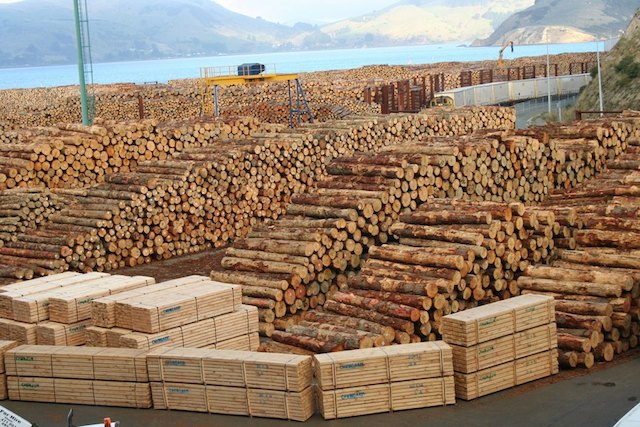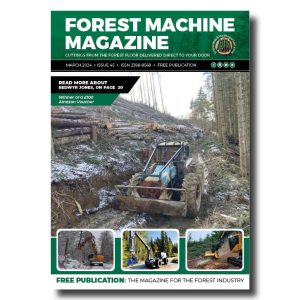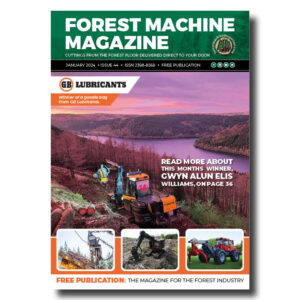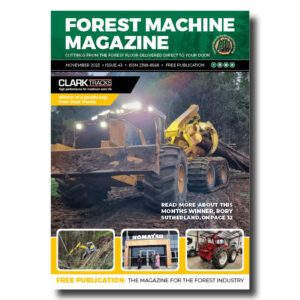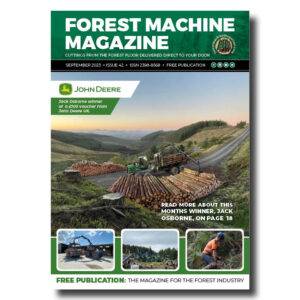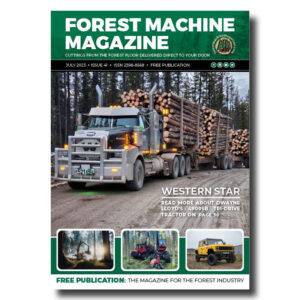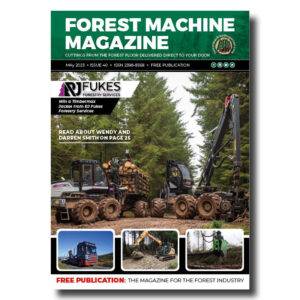Smuggled Russian timber—Think Timber—a UK packaging and distribution company—has introduced a QR-coded system to ensure traceability from forest to building site.
Smuggled Russian timber-A recent forensic investigation has revealed that up to 7.5 percent of all timber utilized in housing within the United Kingdom may be illegally sourced from Russia. Substantial quantities of birch wood, intended for use in furniture, kitchen panels, and structural framing, appear to be infiltrating supply chains under misleading representations.

-
That’s a remarkable amount of work hours for a single machine, the Norcar 600 owned by Erkki Rinne is taken well care of, it even has the original Diesel engine.
-
Kieran Anders is a forestry contractor working in the lake district. His work involves hand cutting and extracting timber using a skidder and tractor-trailer forwarder.
-
It is not possible to eliminate chain shot, but there are simple steps that can be taken to reduce the risk.
-
Arwel takes great pride in the fact that the mill has no waste whatsoever, “the peelings are used for children’s playgrounds, gardens and for farm animals in barns in the winter and the sawdust has multiple uses in gardens and farms as well.
-
Timber hauliers need to encourage young blood in, and also look after the hauliers we have, we need make the sector a safe and positive place to work.
FIND US ON
This finding arises from the work of Source Certain, an Australian-based firm, which traced numerous consignments labeled as originating from Estonia, Latvia, or Lithuania back to Russian forests. This situation persists despite the blanket ban on Russian imports enacted in 2022, facilitated by the integration of logistics data and wood-DNA analysis.
“This intrinsic ‘bar code’ serves as a direct indicator of where the timber has been sourced,” asserts Cameron Scadding, the founder of Source Certain.
After examining over 3,000 samples from construction projects across the United Kingdom, his team revealed that more than 10 percent were inaccurately represented in terms of their origin or species. Notably, three-quarters of the misclassified stock was traced back to Russia.
Industry experts caution that this illicit trade not only contravenes sanctions but also distorts market competition. It enables unscrupulous suppliers to undercut legitimate firms that invest significantly in certified, responsibly sourced wood. “Compliant companies engage in extensive due diligence, only to have their profit margins compromised by illegal operators,” states a senior timber importer. “The integrity of our entire housing supply chain is jeopardized if we are unable to ensure the provenance of our materials.”
Think Timber, a UK-based packaging and distribution firm, has launched an innovative packaging system designed to enhance traceability from the forest to the construction site. This new system incorporates QR codes on each pack, which, when scanned, disclose the complete chain of custody and the country of origin for the materials. Gavin Brown, the Chief Executive of Think Timber, asserts, “Traceability should not be a luxury but rather the industry standard.” He raises a pertinent question regarding the integrity of construction practices, stating, “If illegal timber can be smuggled into our country and utilised in building homes without our knowledge, how can we credibly commit to the responsible construction of 1.5 million homes?”
Brown advocates for stricter regulations, enhanced enforcement mechanisms, and the establishment of mandatory product specification requirements within housing standards. He warns that without clear legal mandates, responsible suppliers will continue to face unfair competition from those using unregulated sources, allowing sanctioned timber to infiltrate new development projects unchecked.
Recent data indicate a significant increase in Belarusian timber imports to Poland, which have surged fivefold as a result of the European Union’s sanctions on the country’s €1 billion timber industry. Findings reveal that nearly 50 per cent of birch products certified under third-party schemes were misrepresented. Chemical fingerprinting conducted by World Forest ID demonstrated that 46 per cent of panels labelled as originating from Poland, Latvia, Ukraine, or Estonia likely originated from Russia or Belarus, raising concerns regarding the ongoing issue of sanction evasion.
David Hopkins, Chief Executive of Timber Development UK, questions the potential sources of these materials, emphasising that legitimate supplies of birch plywood are confined to a limited number of Finnish sawmills and small-scale operations in the Baltic and Scandinavian regions. He concludes that the majority must be sourced from Russia, thereby undermining sanctions and inadvertently financing its economy.”
Sign up for our free monthly newsletter here
Contact forestmachinemagazine@mail.com to get your products and services seen on the world’s largest professional forestry online news network.
#homeoflogging #writtenbyloggersforloggers #loggingallovertheworld
Written by loggers for loggers and dedicated solely to the equipment used in forestry operations.
